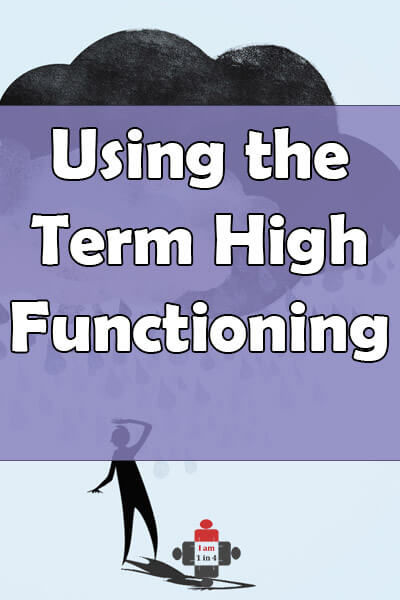Your cart is currently empty!

In Response to the Mighty ‘I Have a Mental Illness…And I’m Fine with That ‘.
People that rate highly on the GAF are termed ‘high-functioning’

- Photo by Lukas on Pexels.com
So, I read an article today on the Mighty titled: ‘I Have a Mental Illness. I’m Not “High-Functioning.” And I’m Fine with That ‘.
So, this is more complicated than it seems, to quote the article. In the DSM-IV, the GAF (Global Assessment of Functioning) attempts to capture a person’s ability to ‘function’ or meet certain demands in life across different domains. These domains were conjured up by the people who designed this assessment scale to rate a person’s ‘abilities.’
I hear it all the time working in Mental Health and also as a person carrying a diagnosis. It’s a term that is both misused and overused, infantilizing, and laden with ableism. The expression I am talking about is “high-functioning”. Clinicians use it to categorize and label people who they feel are doing well and have their condition managed. These are the “worried-well” or the people carrying a diagnosis who also work and, seemingly, go without too many day-to-day crises.
Most people do not realize that there is no such thing as high-functioning. It’s a myth. Without question, this is a myth that is as misleading as it is dangerous to consumers labelled by it. Sure, some folks carrying a mental health diagnosis are managing just fine in their lives. But this is an entirely different phenomenon. People carrying a diagnosis who are not symptomatic are in remission. There is no “high-functioning” term thrown around in the DSM-5. Instead, the DSM uses the expression “in remission”, “partial remission”, “sustained remission”, etc to describe the status of people’s active or inactive symptoms.
Somehow, somewhere along the road clinicians and people started using the term high-functioning when talking about the mentally ill. The term, however, doesn’t carry any stable meaning. From clinician to clinician, the definition – due to the term’s inherently valueless status – will shift. It takes on a whole new meaning to inaccurately and ineffectively describe a mentally ill person’s general situation.
Clinicians use it to talk about a person’s capacity to work, perform ADLs (Activities of Daily Living) and relate with others, and generally to talk about how “well” the patient is doing. But “well” isn’t a clinical term either. So why do people continue to use the term high-functioning? I suspect this is rooted in the application of the DSM-4, where there was once a GAF score (Global Assessment of Functioning) to evaluate how a person manages across different domains of living and how they “function” in these areas. A low score gestured to a person struggling to perform basic life functions and a high score signaled that the consumer was managing their illness well.
The GAF was not only used to score and diagnose; it was used by government agencies and disability determinists to rate a person’s general prognosis and even predict if they would need government assistance. A low score might have awarded a person carrying a diagnosis disability payments, and a high score might have disqualified them from services.
This is where the myth began to emerge in the field of mental health. The GAF score, along with its application and implementation in clinical practice, was as rife with inaccuracies and misuse as it was unhelpful in determining the real clinical picture of the person diagnosed. Inter-rater reliability between clinicians was low. The scores were often unreproducible from the same clinician using the scale multiple times, evaluating the same person’s health at different times with the same health status and client reporting.
In fact, when I was talking with a therapist years ago who was still using the GAF to evaluate my health in a treatment plan review, I would joke with the therapist and ask, “What is my GAF this time?” Since I was a clinician at the time, and I knew how ineffective and inaccurate the GAF score truly was, I would question my therapist’s score. If I was scored at a 70, I would say, “You know, I think I am really at 75”. My therapist would clumsily go over the scale with me, and we would pick out a number that “seemed” more representative of how I was doing.
But the reality of things was that this number was only a marker. It was a lousy diagnostic tool. However, it continued to be used by so many government agencies to award people much-needed services like case management and housing services for consumers.
At the crux of it, the term high-functioning carries with it an assumption. The assumption that the person carrying the diagnosis is doing just fine. Clinicians, caregivers, family and friends use this term to justify, in many cases, the untimely termination of assistance and the elimination of benefits. They put the enrollment patients into programs to maintain their progress.
Without question, the so-called high-functioning patients are left to their own devices when they have reached a point in their recovery that they can be independent. With this said, many consumers fall back into the system and become symptomatic because their programs, Medicaid or disability are cut off. They are left to navigate their lives without the help they have always been accustomed to.
Consumers often cycle back into the system when they reach a certain point in their recovery. They stop being eligible for services. Then, inactive symptoms can become active again, and perhaps even more symptomatic, when the patient relapses. Many patients without services are very much at risk of going into “free-fall” because they aren’t connected to treatment anymore. They are supposedly recovered. In many cases, however, these are the patients that fall through the cracks of the system.
In order to change the system, we need to fundamentally change the language. The very meaning of words used in clinical practice needs to change. Once the language is stabilized, we can more accurately use it to highlight a person’s clinical picture. Then we can begin to assimilate a new lexicon to talk and think about the way mental health treatment is handled by the experts and people with a vested interest in a loved one or family member.
In short, people that rate highly on the GAF are high-functioning’. The term has become incredibly insulting, and rightfully so – for people with lived experience who understand what people are trying to say when they make suggestions that a person is so-called ‘functioning well or highly’ in their life. These so-called high-functioning people are people that ‘hold jobs’ or hospitalized often enough to pass through the public mental health system. I clearly understand what high-functioning is supposed to mean to people who don’t understand mental health issues or stigma.
Nonorganic summations of a person’s ‘abilities’ are limiting. I had experienced being labeled high-functioning. Besides identifying with a false identity, manufactured by the APA (American Psychological Association), which is problematic on its terms, I must pose the question: Is it ever OK to lose ground in your recovery? Or, if you don’t like to use the word recovery, is it OK to lose ground in your health? Here is where I get confused. When is it ever OK to be less OK than you once were?
Sure, we are all human. We have ‘ups’ and ‘downs’ that hopefully are not so high and low that life feels like a roller coaster or doesn’t meet the clinical threshold for mania and depression. Either way that is OK too. But is that the goal? To experience life as it is and be OK with the hands we are dealt? For some people, this might be OK. For others, for myself, maybe not.
For example, I need to constantly push back on my symptoms or aspects of my health I that are unhealthy. My health issues or symptoms require daily upkeep. When I lose ground to activating symptoms, I need to figure out quickly, in no uncertain terms, this is the case. Then, I need to put into action a course correction before my symptoms outpace my ability to cope with life.
I am writing this because I worry about people being passive with their problems. Partly from the personal experience I just revealed. Partly, because I know about the nature of the issues to multiply. When problems become overwhelming is the very moment we let ourselves be passive players in our mental health.
Being OK with where you are at in life is one thing. Being OK with failure is another. But being OK with not being the very best you can be, well, that is where I part from the author’s message in The Mighty.
I get it; let us disable these disabling terms in mental health that stigmatize. But let’s not overreact to them to the point where we say something in which the message is not only unclear, it’s teaching people unhealthy behavior.






Leave a Reply